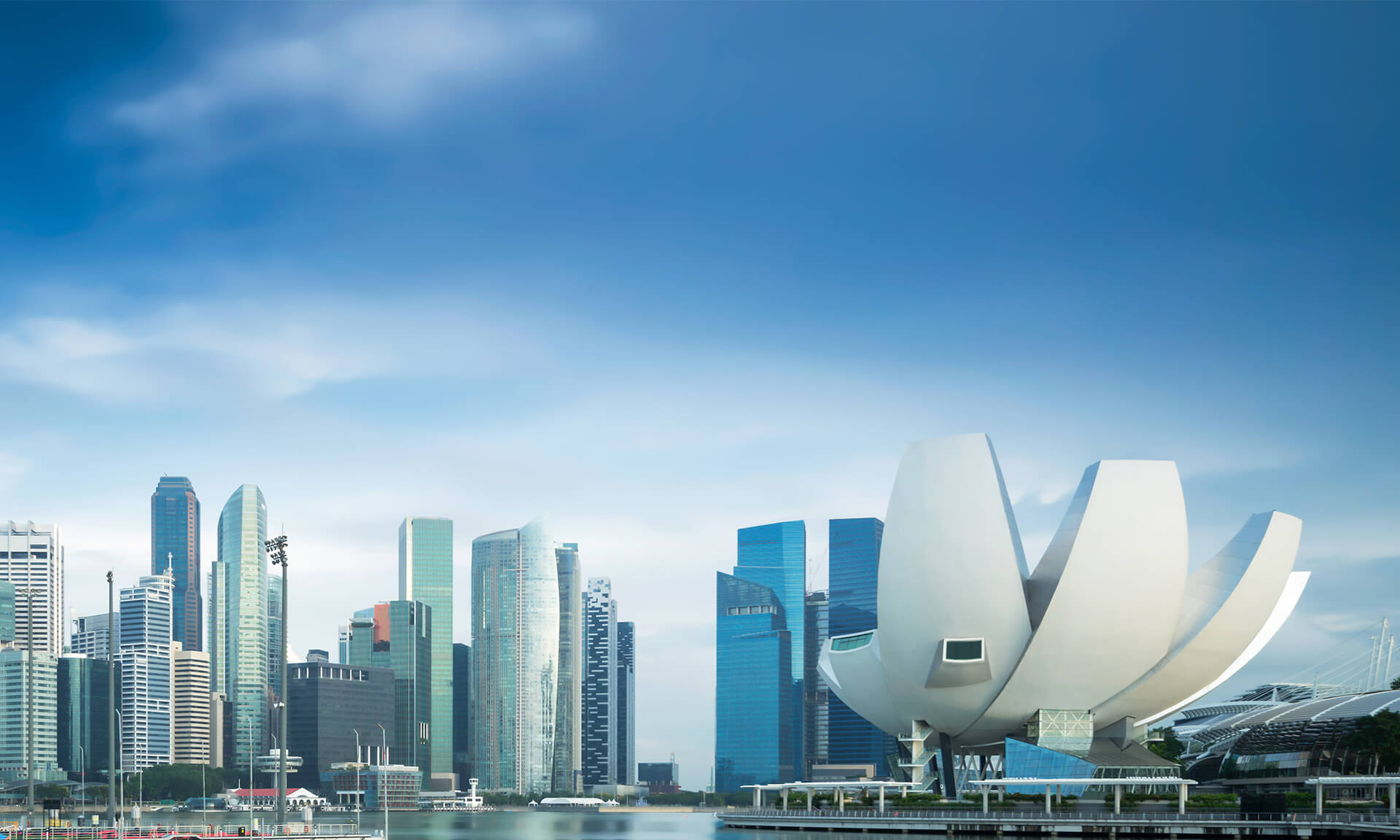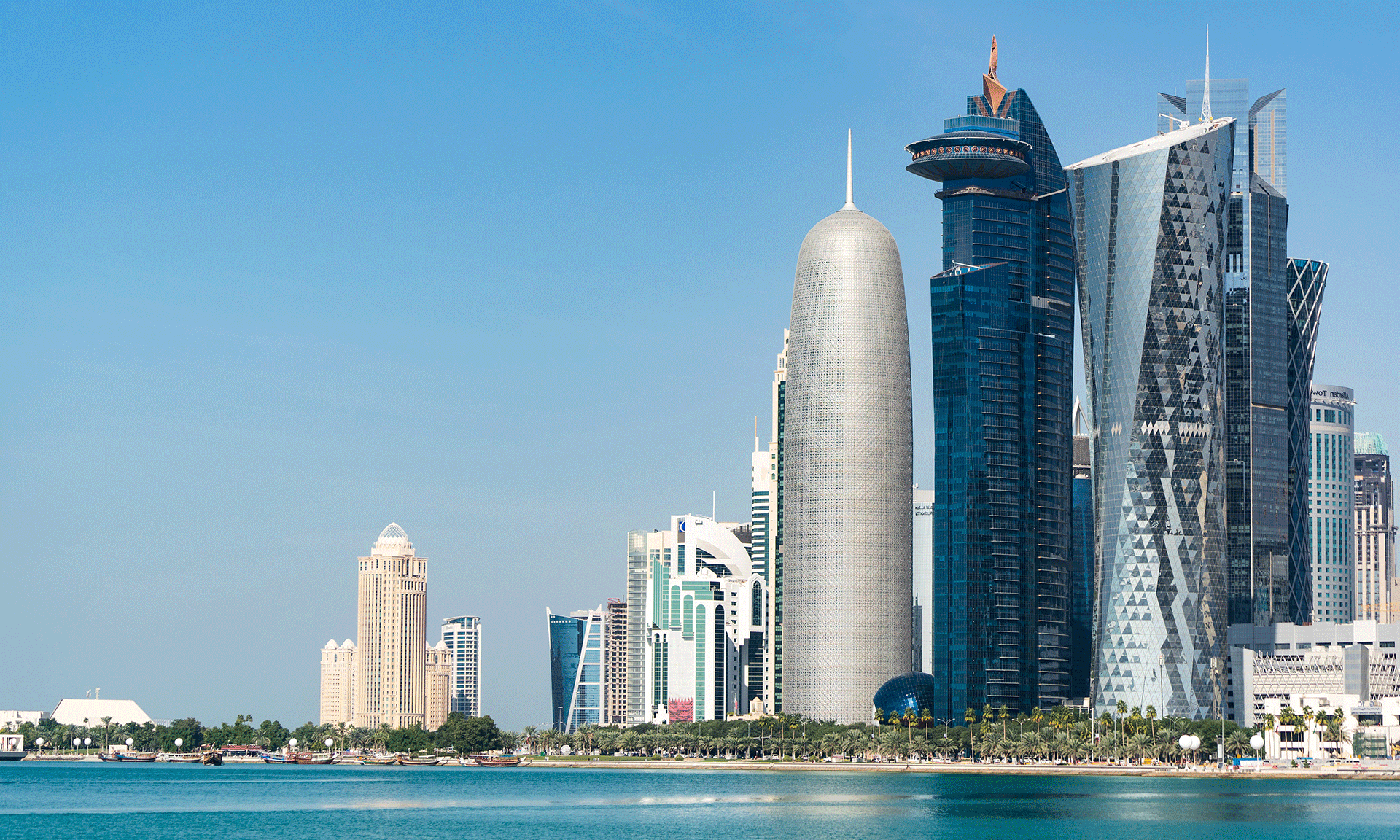
- NEWSLETTER,OMAN
- May 11, 2022
Overview
Oman is on a spree of enforcing reforms and undertaking initiatives to attract foreign investment and put the country on the global map as one of the most lucrative destinations for trade and investment and economically at par with the developed nations.
The Ministry of Commerce, Industry, and Investment Promotion (MoCIIP) has recently issued a new Ministerial decision (MD) effective 4th April 2022 to amend certain Articles of Executive Regulations of the Foreign Capital Investment Law (FCIL) to further enhance the legislative framework of the FCIL and improve the foreign investment climate for doing business in Oman. More such MDs are in the pipeline for positively impacting potential foreign investment and achieving the country’s economic development goals in line with the objectives of Oman Vision 2040.
Investment Promotion Initiatives In 2022
The Ministry has announced some 41 initiatives under six categories to attract more investors for company formation in Oman during 2022.
The investment promotion initiatives planned for 2022 include the creation of new industrial investment opportunities, rolling out a national e-commerce plan, linking commercial transactions to the Bayan Platform, introducing Arabic certificates of origin, setting up dedicated investor services centres and developing the Omani Quality Mark. These are some of the major initiatives to be taken by the MoCIIP in its efforts to promote investment in the country.
To enhance the impact of the economic stimulus package, funds allocated to the government development programme have been planned to be raised from OMR10 million to OMR20 million and fees to be reduced across many services.
The government in a Royal Decree issued on 2nd March 2022 announced several incentives for the foreign investors looking for business set up in Oman in three new Omani airports free zones at Muscat, Salalah and Sohar enjoying 100% foreign ownership; import and export duty exemptions; zero minimum capital; and a 15‑year tax exemption, which can be extended for another five years. Banking, insurance, NBFCs and projects involving telecom, land transport and contract services are kept out of this tax exemption scheme.
18 Investment Opportunities Worth 1 Billion OMR In Waste Management Projects
MoCIIP has unveiled 18 investment opportunities in the tourism and circular economy sectors for waste management projects worth exceeding OMR 1 billion in partnership with the Muscat National Development and Investment Company (ASAS), the Omani Tourism Development Company (Omran), Omani Environmental Services Holding Company (Be’ah) and the Jabal Busher Heights Real Estate Development Company.
The Ministry rolled out these projects in cooperation with the public and private sectors, in the tourism and circular economy sectors for waste management projects for attracting qualitative investments in economic diversification sectors. The initiative will help create an appropriate environment for the success and development of investments and will enable and motivate the private sector to invest and bring in more FDI contributions to the gross domestic product of the national economy.
The official report revealed that out of these 18 investment opportunities in waste management projects, six are in the tourism sector with an investment volume of approximately OMR 974 million and the remaining 12 investment opportunities are in the circular economy sector worth OMR 528 million.
The Importers Directory Service providing a database of global importers in more than 180 countries around the world would also be introduced soon, a government report said. The service will focus on offering support to exporters, institutions and commercial companies operating in Oman and help increase the volume of their exports to all the importing countries of the world.
Some of these waste management projects, as per MoCIIP, will include biogas plants which will be allocated in Barka landfill for the recycling treatment of up to 150,000 tonnes of organic waste per year and producing around 4-6 megawatts of electricity, connected to the main grid for the household energy needs or others.
While one project aims to convert used-cooking oil into biofuel for use in the diesel fleet, the other focuses on constructing two Waste Electrical and Electronic Equipment (WEEE) recycling plants and establishing a waste-to-energy plant. A project for recycling glass waste for green waste recycling has also been designed under this new investment opportunities initiative.
THE TAKEAWAY
The 17 initiatives implemented by the ministry in 2021 have been successful and a few of them have been carried forward to this year.
The country registered growth in FDI inflow by 7.7% to reach OMR 17.08 billion by the end of the fourth quarter of 2021 compared to OMR 15.86 billion during the same period in 2020, as per data released by the National Centre for Statistics and Information (NCSI).

- NEWSLETTER,SINGAPORE
- May 11, 2022
The Monetary Authority of Singapore (MAS) announced new stricter rules on 18th April 2022 for family offices that are benefiting from tax incentives in the country. The new rules have come into force from 18th April, Monday itself.
The revised rules apply to Section 13O and Section 13U of the Singapore Income Tax Act in terms of minimum assets under management (AUM), growth of AUM over a specified period, business spending, local investments and the number of the investment professionals hired by family offices.
A family office is a privately held wealth management advisory firm that manages the assets of ultra-high-net-worth families and handles financial investments, shares, properties and other assets including tax and legal affairs.
Revised S13O Scheme
Minimum AUM
While registering under the S13O scheme, Family offices based and incorporated in Singapore must have a minimum fund size of SGD 10 million (USD 7.3 million) at the time of application.
Growth of AUM
The fund must increase its AUM to SGD 20 million (USD14.6 million) within two years.
Hiring Investment Professionals
Singapore family offices under the S13O scheme must now have at least two investment professionals such as a portfolio manager, a trader, and a research analyst and if unable to do so at the time of application, are granted one year grace period to hire the second one.
Besides, the investment professional must have earnings exceeding SGD 3,500 (USD2,500) per month and have sufficient and satisfactory experience in this industry.
Earlier, under the S13O scheme, the fund only needed to be managed or advised by a fund management company (FMC) in Singapore. The FMC must be licensed under the Securities and Futures Act of Singapore.
Local Investment Requirements
The fund managed by the family office requires a local investment of a minimum of 10% of its AUM or SGD 10 million (USD 7.3 million) whichever is lower including qualifying debt securities; listed
equities on Singapore-licensed exchanges; funds distributed by Singapore registered fund managers and private equity investments into non-listed resident companies and startups.
If the fund managing assets of a Singapore Single Family office, cannot make such an investment at the time of application, a one-year grace period is usually granted to comply with this requirement.
Business Spending
A minimum business expenditure totaling SGD 200,000 (USD146,000) must now be incurred by Singapore family offices per year including tax advisory fees, management fees and remuneration etc.
A tiered framework (below SGD 50 million, SGD 50 million to below SGD 100 million, and SGD 100 million and above) based on the value of the AUM decides the minimum total annual business spending.
The total business spending should relate to the operating activities of the fund and excludes financing activities.
Revised S13U Scheme
Minimum AUM
The value of the minimum AUM remains at SGD 50 million (USD 36.6 million).
Hiring Investment Professionals
The management and advisory of the fund must be handled by at least three investment professionals and one of them must be a non-family member. In the event of non-compliance at the time of application, a one-year grace period to hire a non-family member IP will be granted.
Local Investment Requirements
As under the other scheme, the fund must invest at least 10% of its AUM or SGD 10 million (USD7.3 million) in local investments.
Business spending
Under the S13O scheme, family offices must incur a minimum local business spending of SGD 500,000 (USD 366,000).
Business Spending for Family Offices Under the S13U Scheme is also based upon a tired framework and pegged on the AUM.
As in the other scheme, the local business spending incurred should relate to the operating costs only without any financing activities.
The revised criteria will apply to an FMC that is exempted from the requirements to possess a capital market services (CMS) license and a family office wholly owned or controlled by members of the same families with direct lineal descendancy with the single ancestor. The spouses, ex-spouses, children, adopted and stepchildren are all considered to be members of a single-family.
Singapore is presently the most coveted country for ultra-riches and family offices, with their numbers more than tripled in the last couple of years. An Ultra-high-net-worth family genuinely interested in setting up Single Family Office in Singapore will not be discouraged by the new requirements. Many tax experts believe the new stricter rules will ultimately enhance the quality of Singapore family offices.

- NEWSLETTER,U.A.E
- May 11, 2022
The UAE Ministry of Economy (MoE) and the Korea Federation of SMEs (KBIZ) have recently agreed to develop entrepreneurship and strengthen partnerships between SMEs through cooperation.
Abdullah Al Saleh, Under-Secretary of the Ministry of Economy; and Kim Ki-mun, Chairman of KBIZ, signed this MoU in the presence of UAE Minister of State for Entrepreneurship and SMEs, Dr Al Falasi.
Dr Al Falasi added, “The UAE attaches great importance to the development of the SMEs sector as one of the main pillars of the country’s new economic model and its strategic plans for the future in line with the ‘Principles and Goals of the 50’. The development of international partnerships is a major focus area of the UAE’s efforts in this regard, and South Korea is a major partner for the UAE in our efforts to develop entrepreneurship.”
“The signing of the MoU will help us strengthen the role of entrepreneurs and SMEs in the two countries in fields of economic cooperation and facilitate the development of partnerships, especially in the sectors of health technology and smart agriculture. It will also drive the growth of trade exchanges and stimulate the flow of quality investments in the fields of innovation, research and development,” the Minister highlighted.
The two countries agreed to jointly design partnership programmes to enable Emirati and Korean SMEs to make an easy entry into the markets of the two countries and prosper.
Knowledge sharing between the MoE and KBIZ on developing appropriate policies, programmes and legislations regarding entrepreneurship has also been part of this MoU to put the SMEs of both countries on stronger footings in terms of trade and investments.
Agreement reached on the development of a joint platform to support SMEs will help identify potential and promising investment opportunities in each other’s markets and will particularly help many aspiring Korean SMEs in company formation in Dubai.
MoU also highlighted the need for the exchange of market research and information, mutual participation in international entrepreneurship programs and extending expert support to the SMEs. While the entrepreneurship and SMEs sector account for 99% of the total companies in South Korea, the sector accounts for 98.5% of the private sector in the UAE.
In early April 2022, Korean Export-Import Bank (KEXIM) visited Abu Dhabi to explore ways of strengthening collaboration on export financing and discussed ways and solutions to co-finance Korean organisations looking toward doing business in Dubai UAE for import of goods and services from the UAE including projects undertaken by Korean EPC contractors, provided these projects use materials or expertise from the UAE.
The MoU is seen as a commitment between the two institutions to realize mutual
aspirations and objectives and in all expectations will have a significant positive impact on the export dynamics and relations between the UAE and South Korea and enhance their respective economies.
South Korea’s central bank in a statement, confirmed an agreement with the Central Bank of the United Arab Emirates (CBUAE) to extend a currency swap agreement for five years. The Bank of Korea and the CBUAE originally entered into a USD 5.5 billion currency swap deal which can be renewed and extended by mutual consent of the two countries.

- Article, Singapore
- May 3, 2022
Business owners have to make tough choices daily. It becomes crucial when managing the existing resources and strict deadlines. Hence, business owners go for addressing critical tasks like accounting and bookkeeping on their own. However, this can easily backfire as, technically, the business owners or entrepreneurs are not accounting professionals. The solution is a quick association with the accounting services in Singapore for full-proof accounting work for budding businesses. Let us understand business owners’ critical mistakes while managing all the accounts alone.
Top Three Mistakes While Managing Business Accounting Yourself:
Accounting errors may be substantial or minor. Some of the top mistakes that business owners make while managing the business accounting themselves include:
- Proofing and reconciliation issues: Bookkeeping is crucial to keep yourself on the top of the account dealings. Whether a tax return or the bank statements, expense receipts, profits, etc., proofing errors is unbearable for any business. These can overshadow the dedicated account management and may even lead to wrong payments or duplicate payments.
Reconciliations become important to check the status of customer payments and catch any possible bank errors. Furthermore, in the growing digitization age, it is crucial to ensure that there is no fraudulent activity through accounting systems. Further, it helps business owners keep an eye on how much cash or credit is left in the company’s accounts. Accounting professionals can effortlessly manage all these crucial proofing and reconciliations. Their teams have experience managing different business accounting and hence know the possible loopholes.
2. Unrecorded expenses: While using a dedicated accounting system for your business, it records the possible expenses as soon as it is deducted from the accounts. Hence, it is easy to keep track of the recorded expenses made digitally or through cash receipts. The unrecorded expenses like paying through personal accounts at different places, which is quite common in startups, are unnoticed by the eyes of the accounting system.
It all comes down to managing all the real-time expenses at the right time in the accounting system. The accounting professionals prefer to keep track of every single penny to eliminate any proofing or reconciliation issues afterward. Business owners usually consider the expenses based on the amount and forget to consider the small expenses due to busy schedules. Hence, it becomes important to get connected to the accounting and bookkeeping services that records all the business expenses to avoid any last-minute errors.
3. Data issues: Any digital system like an accounting system used by the business owners is as good as the quality data entered in it. A busy business owner is subject to human errors when it comes to entering the accounting data into the system. These wrong entries lay the base for multiple errors in the accounting and bookkeeping of the business.
Professional accounting and bookkeeping service providers understand the need for correct and timely data entries. On the other hand, it is difficult for business owners to seek specialized training in accounting and bookkeeping while there is a lot to manage. Hence, to eradicate multiple issues in business accounting, it is recommended to seek the help of professionals. Multiple accounting software considers the bills, proofs, etc., while entering data or offers direct export options for eliminating human errors. Thus, it becomes easy to eliminate the delayed entries or wrong entries.
Conclusion – Hiring Best Accounting and Bookkeeping Services Is Best Option:
Experienced accounting professionals should be entitled to the business’ accounting and bookkeeping services. It is easy to get in touch with the outsourced accounting services in Singapore, which offers accounting and bookkeeping services at affordable prices to different businesses. The peace of mind provided by these accounting experts is not to miss, which helps business owners focus on their strengths.

- Article, U.A.E
- April 29, 2022
An Overview
The global COVID-19 pandemic completely transformed the way we lived and shopped before and spurred the rapid growth of online shopping, with nearly three out of four consumers shopping more online than they did before the pandemic. Most online shoppers are also quickly moving away from cash and opting for contactless and digital payment experiences and customers made many purchases from online businesses that are not located in their own country. These are some key insights that would help aspiring e-tailers and businesses to leverage the shift towards online shopping and deliver convenient, fast and secure transactions after an e-commerce business set up in Dubai.
According to data and surveys conducted; FMCG, healthcare, apparel, groceries and electronic items have seen the maximum surge in online shopping in Dubai UAE. The rapidly growing e-commerce space has been primarily driven by high internet penetration and the more disposable income of people living in Dubai. The tech-savvy young population possessing the latest digital devices is also helping this e-commerce space to thrive in Dubai and other emirates.
As online electronic purchase has become the new norm, the growth of e-Commerce in Dubai UAE has become imperative due to the government’s initiatives toward the digitization of trade. Dubai is pivotally positioned on the international trade map and highly equipped with extensive high-tech logistics networks helping Dubai online business opportunities grow in the e-commerce space.
E-commerce in the UAE totalled more than $8 billion in 2021 and is expected to surpass $12 billion by 2025, with 60% online shoppers based in Dubai, a report revealed.
Why should you start an E-commerce business in Dubai?
A Booming Market
The UAE outperforms its GCC peers in e-commerce revenue even though it is less populous than some other GCC nations. The world’s most frequent online shoppers are from Dubai and more than 80% of its population make product shopping online.
Support from the Government
The Dubai government launched the Dubai E-Commerce Strategy to make the city a global logistics hub for the Middle East region and contribute AED12 billion to the economy by 2023. The strategy focuses on attracting more foreign direct investments through new e-commerce business-set-up-in-Dubai and reducing the activity costs by 20% through optimization of storage, customs fees, VAT and transportation.
Robust Transport Infrastructure
Dubai has today the world’s 3rd-best ranked transport infrastructure with best-in-class airports, seaports, roads and bridges.
Availability of Free Zones
More than 30 free zones are operating in Dubai where multiple benefits are offered to new businesses including easy business set-up and early issuance of Dubai-free-zone-E-Commerce-license, lower operating costs, reduced tax rates etc. These free zones also provide opportunities for professional networking.
What are the process steps for setting up an E-commerce business in Dubai?
You can set up a company in Dubai either in-person or online. Following are the steps you need to go through while carrying out E-Commerce-business-setup-in-Dubai.
1- Do Market Research to identify potential customers, their requirements and products on demand.
2- Decide on your licence type based on your business activities, structure, residency status etc.
3- Choose your operating location either in a free zone or mainland Dubai. You do not need a physical office to start an e-commerce business but need an operating location for license purposes. A free zone license provides several added advantages.
4- Register your Company Name with the Department of Economic Development (DED), Dubai.
5- Apply for an e-commerce license from DED that allows you to carry out multiple businesses through social media networks.
6- Apply for an Initial Approval Certificate as a NOC which is non-renewable and gives you business clearance for the first six months.
7- Design and develop your website which should be user friendly and secure after registering a domain for your website.
8- Establish a Payment Processing Portal on your website in compliance with Telecom Regulatory Authority (TRA) guidelines for electronic transactions.
9- Plan and implement logistics support for the customers of your e-commerce business. You can do it on your own or hire third-party logistics services.
10- Register with a port and customs authority to get the importer’s code and deal in imported goods, if necessary.
11- Open a Bank Account to handle all your business-related financial transactions.
How many types of E-commerce licenses are available in Dubai?
Several E-Commerce Licenses in Dubai. have been introduced by the DED and include
1. E-Trader License usually issued to UAE and GCC nationals residing in Dubai and engaged in providing online services or selling online products. This one is a single ownership license and does not need a physical office. The eTrader cannot open a shop and in the event of any legal dispute, the licensee alone is held responsible.
2. Portal License is issued to non-UAE nationals and allows linking of buyers and sellers using website listing products and services.
3. Virtual Company License is a relatively new license type allowing foreign investors and UAE non-residents to take up commercial activities including computer programming and consultancy, designing, and services related to printing and advertising.
What is the procedure for getting an E-commerce license in Dubai?
Selling physical products through a web shop is a regulated activity in the UAE and you need a license. However, if you sell digital products, no additional license from DED is needed if you set up a right free zone company.
Following are the steps to get an e-commerce license in Dubai.
- Apply to DED Trader website with the required documents
- Make a DED trader account
- Do Registration
- Make the Payment
- Obtain the License
There are some legalities, however, including the owner’s minimum age of 21, possession of a valid Emirates ID, license renewal within one month of expiry.
What are the documents needed for an E-commerce license in Dubai?
The following documents are required to the submitted while applying for an e-commerce license.
- Filled-in application form
- Copies of Passport/visa of the shareholders
- Identity and address proof of the business owners and shareholders
- Copy of sponsor’s passport/ Emirates ID
- Local service agreement/ Civil works agreement
- NOC from the relevant authority
- Memorandum & Articles of Association
What are the business activities allowed under DED E-trader license?
Dubai-online-business-opportunities in the e-commerce space under the E-Trader license include the following allowable e-Trading activities.
- Recreational Events and Sports
- Professional, Personal and Household Goods
- Jewellery and Precious Stones
- Apparel and Gifts
- Media and Publications Materials
- Equipment
What about the E-commerce licenses in the free zone?
Free zones have their own rules and regulations and are not usually permitted to carry out commercial activities in the wider UAE, the mainland and offshore. This restricts a trader from freely trading and selling products online and the e-trader needs to get a separate license from DED as well.
Though E-Commerce activities are allowed in some free zones, the scope is limited and involves only selling electronically without permission for retailing.
In the UAE, a free zone company with an E-Commerce activity usually acts as a middleman till such time you acquire a license from DED.
What is the Cost of an E-commerce License in Dubai?
The cost of an E-commerce license in Dubai depends on several factors as below.
- The license type, either mainland or a free zone
- Business Size
- Total office space including areas for commercial use
- Number of visa applications
- Business Type
The minimum e-commerce license cost is roughly AED 14K.
The Takeaway
The ‘e-trader’ scheme was introduced by DED for licensing online businesses established via various social media applications such as Instagram, SnapChat, Whatsapp or Facebook to enhance consumer confidence when shopping for products and services on social networking sites.
An e-commerce store is an online-business-in-Dubai-without-investment and holds great promise provided you have the networking and interactive skills and can build a great website with innovative features.

- NEWSLETTER, QATAR
- April 12, 2022
Two new Circulars have recently been published by the Ministry of Commerce and Industry of Qatar on 1st February 2022 in connection with some procedural aspects of private and public shareholding companies. Both these two circulars were issued by the Head of Companies Affairs Department.
While the mechanism and methods of publishing the annual financial statements of public and private shareholding companies are regulated under Circular No.1 2022, Circular No. 2 of 2022 deals with the mechanism and controls of appointing experts to evaluate the in-kind shares and special benefits for shareholders of private shareholding companies.
The Circulars stipulate important guidelines on some procedural aspects of Commercial Companies Law that provide more clarity to the ministry’s employees, companies, shareholders, and other concerned parties.
CIRCULAR NO. 1 2022
Circular No. 1 of 2022 of the Qatari Ministry of Commerce and Industry (MoCI) specifies rules about the publication of financial statements.
MoCI, vide Circular No. 1 of 2022 has better interpreted and simplified the rules regarding the publishing of the annual financial statements of public and private shareholding companies.
Under Article 126 of the Commercial Companies Law No. 11 of 2015 (as amended by Law No. 8 of 2021) (the “Commercial Companies Law”), it is stipulated that “The chairman of the board of directors must publish the balance sheet, profit and loss accounts, a sufficient summary of the board of directors’ report and the complete text of the auditors’ report in two daily local newspapers at least one of which shall be in Arabic and on the company’s website (if available), at least fifteen (15) days prior to the date of the annual general assembly meeting. A copy of such documents shall be submitted to the relevant department at MoCI prior to publication to determine the publication mechanism and manner.”
Some important highlights of this Circular No. 1 2022 are as follows.
MoCI has issued the Circular, as regards Article 126 of the Commercial Companies Law, to determine the manner and mechanism of publication of annual financial statements and has stipulated the following rules, amongst others:
1. A copy of the following documents must be submitted to MoCI before publishing by the chairman of the board of directors or his deputy or any of the members of the board of directors or one of the members of the senior executive management authorized by the board of directors
- The company’s annual budget and profit and loss account are approved by the chairman of the board of directors or one of the members and by the company’s auditor
- An adequate summary of the board of directors’ report approved by the chairman or his deputy
- The full text of the auditors’ report for the ended financial year before publication, certified by the company’s auditor
2. The chairman of the board of directors, his deputy, or any authorized person by the board of directors must send a copy of the publication to the relevant department at MoCI simultaneously while sharing it with the newspapers
3. The publication must clearly state p
The name of the company, its legal form, its number in the commercial register, and the respective financial year must be clearly stated in the publication and all such documents need also to be titled clearly
4. Subject to the provisions of Articles 120 and 121 of the Commercial Companies Law, annual financial statements must be published in two local daily newspapers and one of which must be in the Arabic language
Article 184 of the Commercial Companies Law, though not specifically mentioned in this Circular No.1, mandates shareholding companies to publish their biannual financial reports.
CIRCULAR NO. 2 2022
Circular No. 2 of 2022 of the Qatari Ministry of Commerce and Industry (MoCI) specifies the mechanism and controls for the appointment of experts and evaluations of in-kind shares.
The recently issued circular regarding private shareholding companies, Circular No. 2 of 2022 dated 1 February 2022 regulates the mechanism and controls of appointing experts to evaluate the in-kind shares and special benefits for shareholders of private shareholding companies.
The Scope
Circular No. 2 of 2022 applies to all types of private shareholding companies which include
- Newly incorporated private shareholding company
- Upon increase of share capital
- Conversion of any type of company to a private shareholding company
- Merger with a private shareholding company
- Upon acquisition of a private shareholding company by a share swap
- Upon division into a private shareholding company
The Circular is an important advance toward clarifying and determining the obligations of each concerned party, in the process of
evaluating the in-kind shares and special benefits of the shareholders of private shareholding companies.
The reason behind the issuance of Circular 2 2022 is that such evaluation of in-kind shares and special benefits is required under the law on several occasions and during the incorporation, conversion, acquisition and merging of private shareholding companies.
As the mechanics of such evaluation has not been clarified under the Commercial Companies Law, the Circular will serve as a guide to all concerned parties such as the shareholders, evaluators and the employees of MoCI.
Schedule of Experts
The Circular documents that the MoCI, Departments of Control and Inspection of Establishment and Restructuring of Companies, shall prepare and make the issuance of a schedule of experts/evaluators from the following fields:
- Financial auditors in possession of licences in the State of Qatar and established under the MoCI or the Qatar Financial Centre
- Evaluators registered with the Ministry of Justice, and
- Experts with valid licenses to provide financial and economical consultancy services with experience in evaluation
The Procedures of Evaluation and Reporting
The Circular specifies the procedures to be followed by the MoCI, the company and the appointed experts/evaluators.
The procedures include but are not limited to, the following
- Submission of the application at the MoCI regarding the evaluation request
- Appointment of the evaluators
- Determining evaluation timelines
- Obtaining MoCI’s approval of the evaluation report
About the data/information to be made available in the evaluation report, the MoCI has specified the minimum information required to be available in the evaluation report, which should be issued in Arabic language or at least be translated into Arabic if provided in a different language.
Such information includes but is not limited to, the following
- The name of the evaluator
- The purpose of the evaluation
- The evaluation methodology
- The sources of information and data
- Disclaimers stating that the MoCI is not responsible for the content of the report and that the providers of the in-kind shares shall be jointly responsible for the information included in the report

- NEWSLETTER,U.A.E
- April 6, 2022
Overview
As UAE takes giant strides toward becoming an international hub for virtual assets and generating long term economic growth through digital innovation, the country announces a new law for regulating virtual assets and creating a regulated onshore industry for such assets in Dubai.
On February 28, 2022, Law No. 4 of 2022 on the Regulation of Virtual Assets in the Emirate of Dubai, the “Virtual Assets Law” was approved by Sheikh Mohammed bin Rashid Al Maktoum, the Vice President and Ruler of Dubai.
The Virtual Assets Law applies to virtual asset services extended throughout the Emirate of Dubai and its special development and economic free zones with the only exception being the financial services free zone, Dubai International Finance Centre (DIFC).
Key Features of the Virtual Assets Law
1. A New Regulator for Virtual Assets
The Virtual Assets Law establishes the Dubai Virtual Assets Regulatory Authority (VARA) as the primary regulator of virtual assets in Dubai that is affiliated with the Dubai World Trade Centre Authority (DWTC). Under the Law, VARA focuses on promoting Dubai’s status as a regional and international destination in the virtual assets category and enhancing the digital economy of the emirate.
2. Broad Scope of the New Law
The scope of the Virtual Assets Law is large and the definition is quite broad. The new law defines virtual assets as a digital representation of value that can be traded, transferred, or used as an exchange or payment instrument or for investment purposes and can include tokens, cryptocurrencies and any other virtual asset determined by VARA.
3. Enforcement
The Virtual Assets Law came into force on March 11, 2022, and when the new law was published in the Official Gazette.
4. Authorization and Licensing Requirements
A broad range of activities requires authorization from VARA under the Virtual Assets Law, article 16. The Virtual Assets Law stipulates that applicants must establish Dubai as the headquarters for their business and must obtain a commercial business license from the relevant licensing authority in Dubai.
The Virtual Asset Law prohibits certain activities without authorisation from VARA. These activities include
- Platform operations and management services for virtual assets
- An exchange between virtual assets and currencies, whether domestic or foreign
- Exchange between one or more forms of virtual assets
- Transfer of virtual assets
- Any custody as well as management and control of virtual assets
- Virtual asset portfolio services, and
- Virtual offering and trading services
5. Liaise with other Authorities
VARA is expected to liaise with the UAE Central Bank to implement measures to ensure the protection and stability of the financial system.
6. Responsibilities of the New Regulatory Authority
VARA, the new regulator has a broad mandate and some of the key responsibilities include
- Ensuring beneficiary data protection
- Regulating the operation and management of virtual asset platforms, service providers and all that relates to virtual assets, and
- Authorizing exchange services between virtual assets and currencies or between one or more forms of virtual assets
Besides, VARA is also responsible for organizing, supervising and controlling the issuance and offering of virtual assets as well as prevention of illegal practices for increased transparency.
7. Economic Sanctions and Penalties
As per Virtual Assets Law, VARA is authorized to take various penal and economic sanctions including suspension authorizations, suspension of the activities of any virtual asset service provider and suspension of business dealings with any virtual assets in certain situations.
Conclusion
UAE is the Middle East’s third-largest crypto market, with a transaction volume exceeding $25 billion. There have also been several new developments in the regulation of virtual assets recently. Dubai Multi Commodities Centre (DMCC), the largest free zone in the UAE, set up a regulatory framework for crypto firms in collaboration with the Securities and Commodities Authority (SCA) in March 2021. Abu Dhabi Global Market (ADGM) has already enacted laws and regulations for controlling virtual crypto assets in its jurisdiction.
The recent enactment of the Virtual Assets Law together with these developments reflects the ever-growing interest in virtual assets in the UAE suggesting the country’s ever-growing willingness to embrace new innovative technologies and transform itself into a global leader in the sphere of virtual asset and blockchain technology.

- NEWSLETTER,OMAN
- April 6, 2022
The national GDP contribution of non-oil sectors in Oman is expected to reach 90% by 2040, noted Ahmed Al Hajri, Director General of Nizwa Industrial City.
Ahmed Al Hajri, in a seminar titled ‘Nizwa Industrial City: Reality and Prospects’ affirmed, “The economic stimulus plan, approved by the Council of Ministers and endorsed by His Majesty Sultan Haitham bin Tarik, presents incentives to ensure economic growth rates of more than 2.5%.” The seminar was organised by Public Establishment for the Industrial Estate (Madayn) and as a part of Madayn’s Oman Manufacturing Group (OMG) series of events for the year 2022.
While elaborating on the benefits and prospects of the existing investment climate in Nizwa Industrial City, the Director-General quoted manufacturing as one of the leading sectors to diversify the country’s economy and non-oil sector growth.
Al Hajri informed that the investment volume in Al Dakhiliyah Governorate has climbed to approximately OMR 900 million (USD 2.34 billion), of which OMR 600 million is the total investment volume of Nizwa and Samail Industrial Cities, effectively representing 66% of the total investment volume in Al Dakhiliyah.
He also confirmed that the number of local projects in these two industrial cities has reached nearly 300 employing around 6,647 workmen.
The Madayn Director-General then highlighted the incentives given by Madayn to the investors and business owners in its network of industrial cities across the sultanate.
The incentives outlined by Al Hajri included the following
- A lease period of lands and facilities for up to 30 years and renewable for the same period
- Usufruct contracts for up to 99 years and the right to waive the lease right for the remaining period of the contract;
- Right to sell constructions and buildings on the leased land
- Right to involve new partners in the lease contract
- A fair evaluation of buildings and facilities upon the termination of the lease contract
- Well developed and equipped lands with basic services e.g. water, electricity, telecom, roads
- Transparent legal frameworks
- On time delivery of Services
The Director of Strategic Planning and Corporate Performance Assessment at Madayn, Mariya Al Zadjali appraised the audience on Madayn Vision 2040 and emphasized that the vision 2040 focuses on creating world-class business cities, preserving the identity of Oman, and significantly contributing to economic growth and prosperity.
Comprehensive and sustainable socioeconomic reforms and social development are at the core of this Vision 2040 and are designed to be achieved through strong Public-Private Partnerships, well-developed business cities with integrated services, adoption of best practices, solutions and technologies to address business requirements and business variability while complying with the environmental norms.
The Director of Planning and Geographical Systems at Madayn, Eng Samar Al Hosni presented the investment opportunities available in Madayn Investment Complexes in Sur, Samail, Sohar and Al Buraimi Industrial Cities.
The Director informed that in Sur Industrial City, investment opportunities are provided for doing business in Oman and food investment complexes on an area of 42,000 sq m, and multiple industries investment complexes on an area of 41,000 sq m.
Investment opportunities are also offered in Samail industrial city and food investment complexes on an area of 53,000 sq m, multiple industries investment complexes on 22,000 sq m, and logistics investment complexes on 61,000 sq m areas.
The investment opportunities available with Sohar industrial city include food investment complexes having an area of 60,000 sq m, multiple industries with 60,000 sq m, and plastic industries investment complexes with 50,000 sq m.
Al Buraimi Industrial City also offers investment opportunities in food investment complexes on an area of 27,000 sq m and multiple-industries investment complexes with 32,000 sq m area.
Besides manufacturing, Oman has identified certain other sectors as ripe for development, including mining, tourism and logistics which will be the key drivers of the non-oil economy and help Oman achieve its Vision 2040 objectives. The country aims to boost economic growth outside of Muscat by investing in special economic zones and encouraging the expansion of industrial estates for company formation in Oman.

- NEWSLETTER, U.A.E, SINGAPORE
- April 6, 2022
In its bid to boost global trade and investment and promote mediation to settle cross-border commercial disputes, the UAE has joined the Singapore Convention on Mediation as the 56th signatory of the convention.
The UAE is all set to start enacting a framework for the enforcement of settlement agreements resulting from commercial disputes, noted a brief released on 16th March 2022 Wednesday by Abu Dhabi Global Market.
At its inaugural dispute resolution forum, Resolve 2022, ADGM announced its move to join the Singapore convention on the back of support from the financial centre, the Ministry of Foreign Affairs and International Cooperation and the Ministry of Justice.
The Chairman of ADGM, H.E. Ahmed Jasim Al Zaabi, welcomed the local and global participants to the inaugural #RESOLVE2022 which is a leading International Dispute Resolution Forum.
“Joining the Singapore Convention will be a momentous step for the UAE, underlining its progressive spirit and leadership and reinforcing its position as a global trading hub,” ADGM Chairman added.
“The move will help boost international trade and investment, encourage commercial dispute resolution through mediation and strengthen the UAE as a global business destination of choice,” he emphasized.
The convention will provide the UAE with a “uniform and efficient mechanism” by which it can enforce the terms of agreements in other jurisdictions, a similar framework to what the New York Convention on the Recognition and Enforcement of Arbitral Awards does for international arbitral awards, an official statement from the ADGM noted.
Abu Dhabi arranged a fast-track courtroom last year to hear monetary disputes under commercial and civil circumstances, for giving judgments in record time, within 15 days of registration of cases.
The Emirates, in its attempt to broaden and advance economic opportunities, is aggressively forging partnerships with other countries for business setup in Dubai UAE and has already engaged with major global economies including the US, Israel and Singapore to improve investments and trade.
Businesses will benefit from mediation as an additional dispute resolution option to litigation and arbitration in settling cross-border disputes facilitating FDI inflow into the country through Singapore company incorporation.
The United Nations General Assembly in December 2018 passed a consensus resolution to adopt the United Nations Convention on International Settlement Agreements Resulting from Mediation, recommended that the Convention be known as the “Singapore Convention on Mediation”, and authorised the signing ceremony of the Convention to be held in Singapore on 7 August 2019.
A total of 46 countries, including the world’s two largest economies including the United States and China along with the three largest Asian economies including India and South Korea signed the Convention on opening day. Also, another 24 countries attended the signing ceremony in Singapore to show their support for the Convention.
Joining the Singapore convention would help the UAE in promoting worldwide trade and funding, encourage commercial dispute decisions utilizing mediation and strengthen the country as a preferred global business destination.

- NEWSLETTER,SAUDI ARABIA
- April 6, 2022
A five-year Memorandum of Understanding (MoU) has been signed between the Saudi Accreditation Centre (SAC) and the UK Accreditation Service (UKAS) to help improve quality infrastructure and boost consumer confidence. This is one of the most notable among several agreements being reached between Saudi Arabia and the UK recently.
Matt Gantley, the Chief Executive Officer (CEO) of UKAS and Dr Adel Alkeaid, the Executive Director of SAC signed the MoU on 16th March 2022 to establish a long sustainable professional relationship between the two national Accreditation Bodies.
Both SAC and UKAS are experts in the field of accreditation and expressed their willingness to share individual knowledge, experience and expertise through this MoU for national quality infrastructure building.
UKAS and SAC agreed to work jointly to offer technical consultation and support, implement joint certification programmes on areas of mutual interest, and develop plans for accredited activities.
Besides consultations and support services, the MoU also addressed several other aspects of cooperation such as training programs, joint events, and any other promotional aspects for enhancing trade exchanges between the two nations.
While the accreditation authority in the UK is one of the oldest and leading accreditation bodies in the world, the SAC is the only national body authorized to grant accreditation services in the Kingdom of Saudi Arabia for conformity assessment bodies in the field of inspection and certification bodies, testing and calibration laboratories.
This MoU will help Saudi Arabia to establish its global status as a top-class-quality provider of products and services and enhance the economic prosperity of the country through increased trade and investments.
The agreement formalizes the engagement of UKAS with SAC to boost accreditation services and establish and develop a strong long-term relationship for cooperation and facilitation of international trade and investment through reduction of barriers and increased foreign investment through new company formation in Saudi Arabia.
Dr Al-Qaid noted saying, ‘The MoU stems from the centre’s strategy in developing the technical competencies and capabilities of the centre and preparing qualified national personnel of assessors and experts, which contributes to strengthening the role of accreditation and its importance in the quality infrastructure in Saudi, benefiting from research, studies and joint experiences.’
‘We welcome this opportunity to work with SAC to increase services and capacity, developing an even stronger relationship of mutual long-term cooperation and aiding in the reduction of barriers to international trade,’ the CEO of UKAS commented.
In 2021, the Saudi Accreditation Center (SAC) gained national achievement by obtaining global recognition from the International Laboratory Accreditation Organization (ILAC), through the Arab Accreditation Cooperation (ARAC), in the areas of accreditation of testing laboratories, calibration laboratories and inspection bodies.
It is believed that the MoU will bring global recognition for national quality infrastructure services in Saudi Arabia and contribute significantly to the Kingdom’s signing of bilateral and multilateral trade agreements. It would also enhance the confidence of the International investment community in investing and doing business in Saudi Arabia.
Accreditation activity has long been recognised as one of the most important pillars of national quality infrastructure for its crucial role in enhancing the quality and adequacy of services and products, and increasing consumer confidence.
A Member Firm of Andersen Global
- 175+ Countries
- 525+ Locations
- 17,500+ Professionals
- 2350+ Global Partners


















 IMC Group
IMC Group